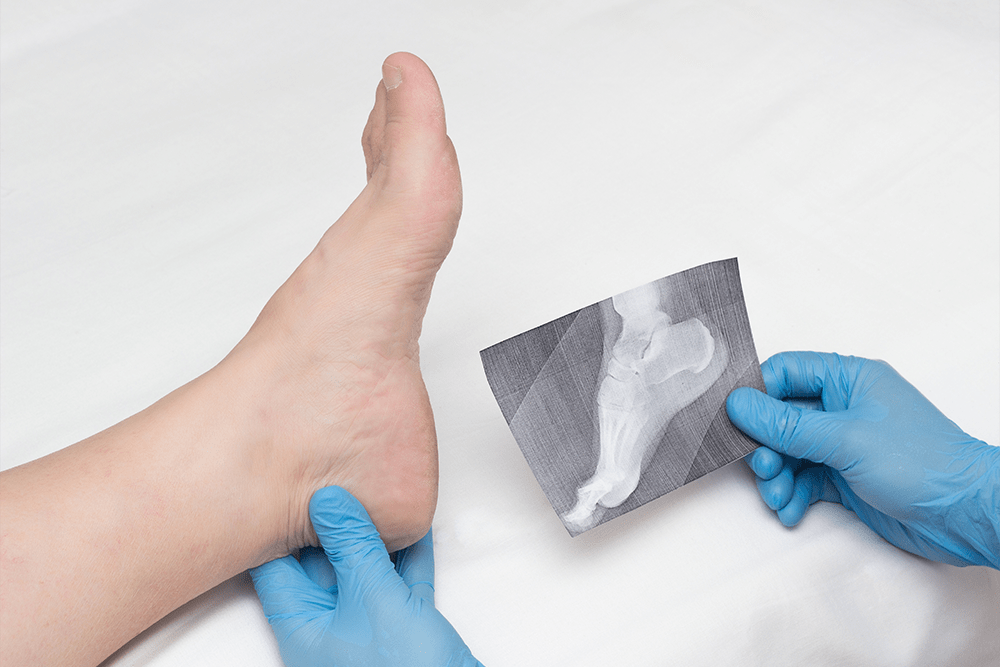Plantar Fasciitis Care Management
Plantar fasciitis can develop suddenly or evolve gradually over time. It can affect people of all ages, but is more common among a few particular groups, such as those aged 40 and above, those with occupations that require standing most of the time, overweight individuals and those involved in regular strenuous exercise.
What is Plantar Fasciitis?
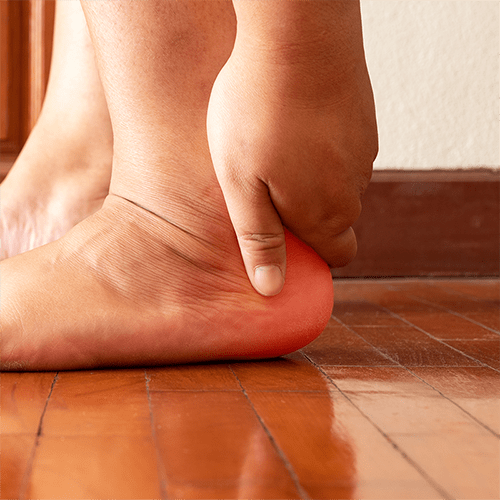
Plantar Fasciitis is a musculoskeletal condition causing pain under the heel or into the inner arch of the foot. Plantar Fasciitis is commonly mistaken for an impact trauma or heel bruise, but it is actually caused by the mechanical over-stretching of the fibrous tissue in the heel arch.
Heel pain is most often caused by plantar fasciitis. However, heel pain can also arise due to other factors like sciatica, tarsal tunnel syndrome, stress fractures, tendonitis, arthritis or nerve irritation.
Unlike many other musculoskeletal injuries, plantar fasciitis generally does not improve on its own over time, since walking is typically necessary as part of our daily living. Conditions like a tennis elbow are more likely to improve with time and rest as we can utilise another arm while the affected elbow is healing. This is much more difficult with our feet, resulting in an accumulated lack of healing.
How Suffering From Plantar Fasciitis Looks Like?
Most people suffering from plantar fasciitis suffer from extreme tenderness in the heel when they take their first few steps out of bed in the morning. Internally, your body is attempting to mend a structure that runs parallel to the sole of your foot. Similar to a scab, this structure is not strong enough to withstand high pressure and will be instantly torn when you stand. Furthermore, inflammation can cause swelling under the heel, increasing painfulness.
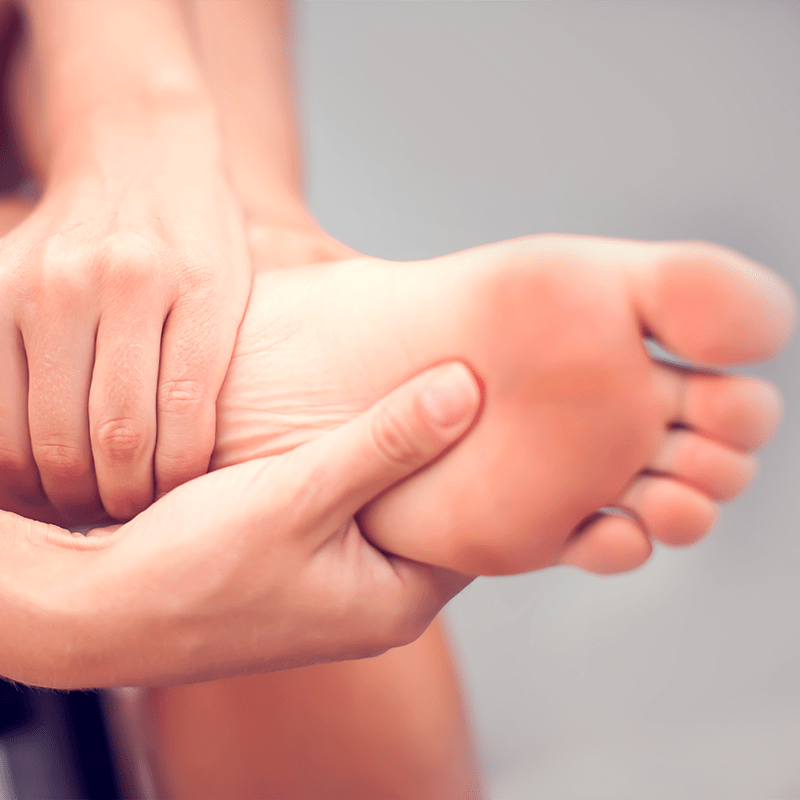
Plantar Fasciitis Causes
1 Age
Those between the ages of 40 and 70 who are still active have the highest risk for developing plantar fasciitis. Moreover, the condition is also more common in women than men.2 Obesity
Overweight or obese individuals have a higher risk of developing plantar fasciitis due to an increased amount of pressure exerted on their ligaments.3 Lifestyle & Occupation
Long distance runners or those with jobs that require standing most of the time are more prone to developing plantar fasciitis. Wearing shoes with soles that are too soft or with poor arch support can also put you at a higher risk of developing plantar fasciitis.4 Foot Mechanics
Those with certain foot conditions such as flat feet, a high arch or tight achilles tendons may develop plantar fasciitis or experience heel pain.Plantar Fasciitis Complications
Leaving plantar fasciitis unmanageed can result in chronic heel pain and disrupt your current lifestyle. If you change the way you walk in order to relieve pain from plantar fasciitis, it may lead to problems and injuries to your legs, knees, hip and back. Certain care management like steroid injections may also weaken your heel and potentially cause damage to your ligament.
Undergoing plantar fasciitis surgery comes at the risk of side effects like:
- Bleeding
- Infection
- Allergic reactions to anaesthesia
- Foot or nerve damage from plantar fasciotomy
- Nerve damage from gastrocnemius recession surgery
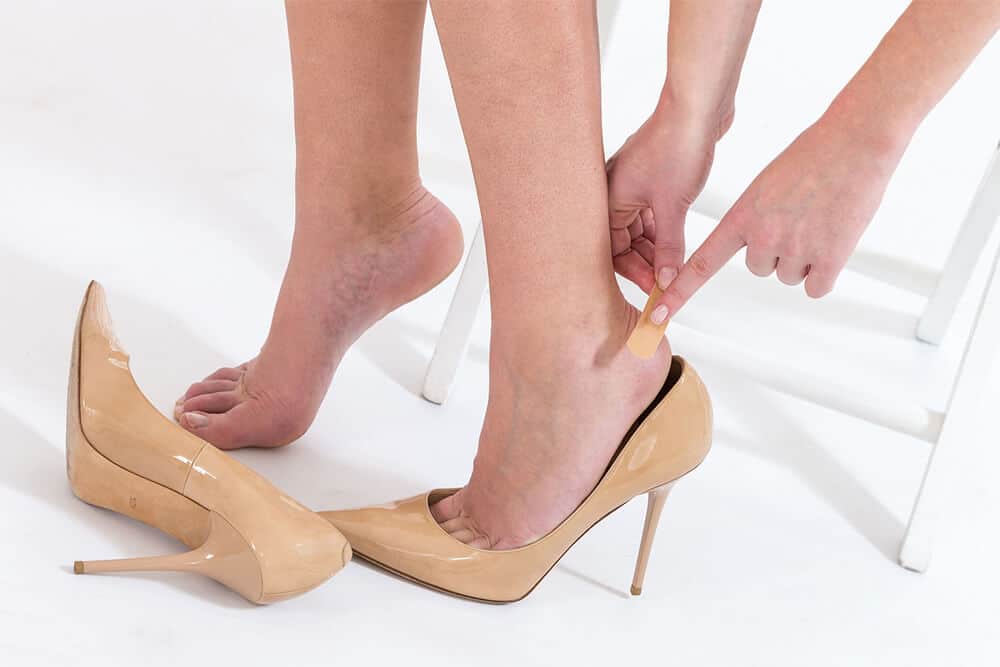
Plantar Fasciitis Symptoms
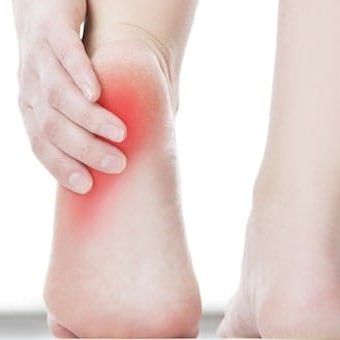
Sharp heel pain
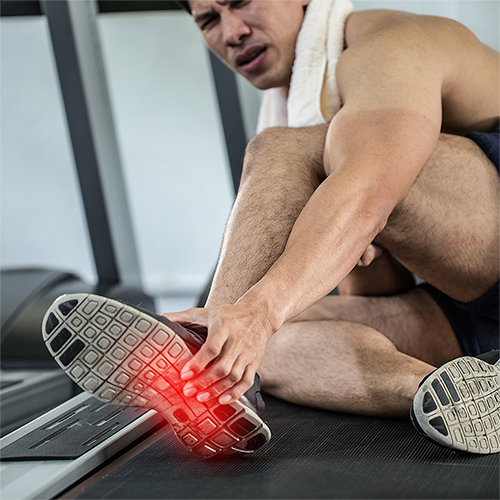
Pain after prolonged rest or activity
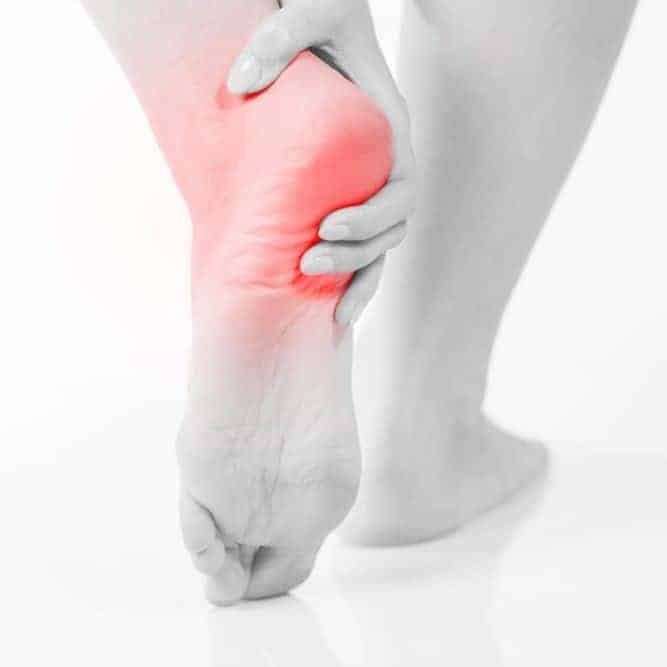
Tender heel
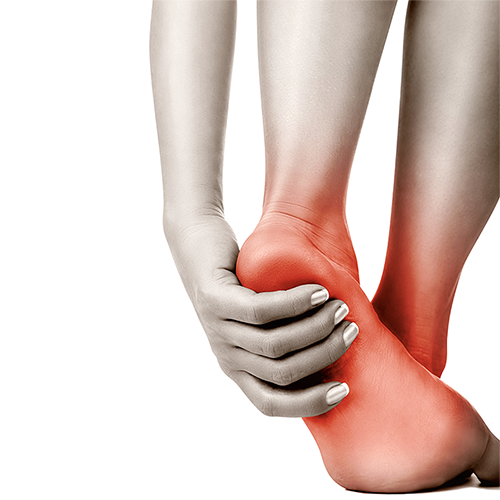
Pain while flexing
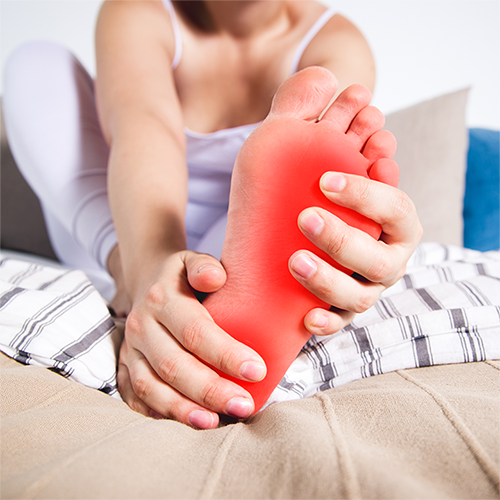
Burning or tingling sensation in feet

Limping
Plantar Fasciitis Care Management in Singapore
My Foot Doctor has manageed nearly 100,000 cases of plantar fasciitis over the past 20 years. Through video gait analysis, an advanced form of motion analysis, we diagnose complex motion-related pathology of the foot, ankle, knee, hip, and lower back.
Plantar Fasciitis Shockwave Therapy
At My Foot Dr Singapore, we use advanced shockwave therapy to manage conditions like plantar fasciitis, achilles tendonopathy, painful trigger points and other musculoskeletal disorders of the foot and lower limbs.
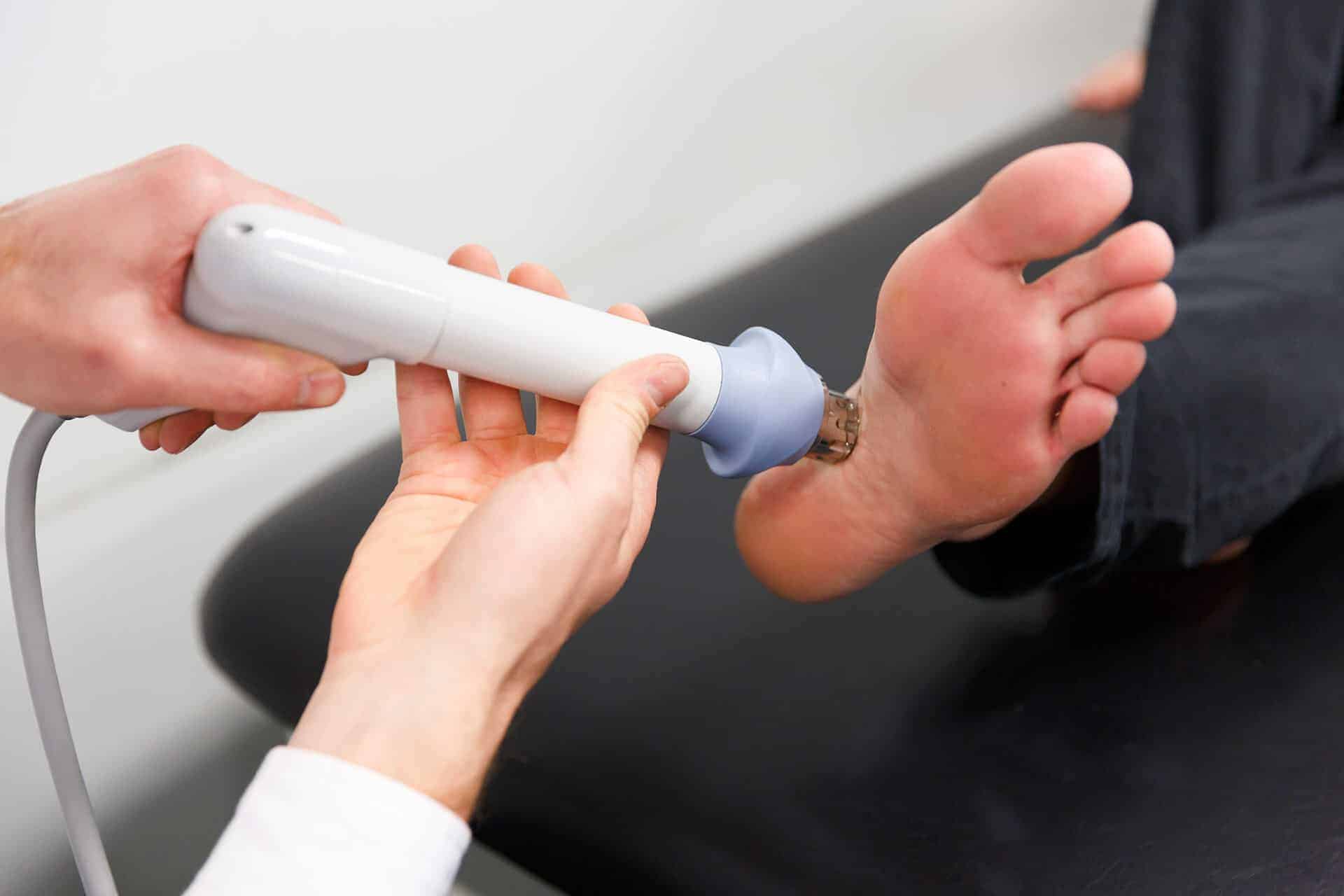

Plantar Fasciitis Exercises
Foot stretches and exercises can improve plantar fasciitis by relieving pain, strengthening muscles, and encouraging flexibility.
Plantar Fasciitis Taping
Taping can help to decrease the amount of pressure exerted on your ligaments when you are on your feet. This can help your plantar fascia to heal and lower the risk of future injury.
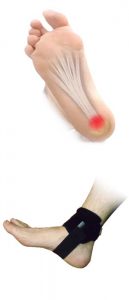
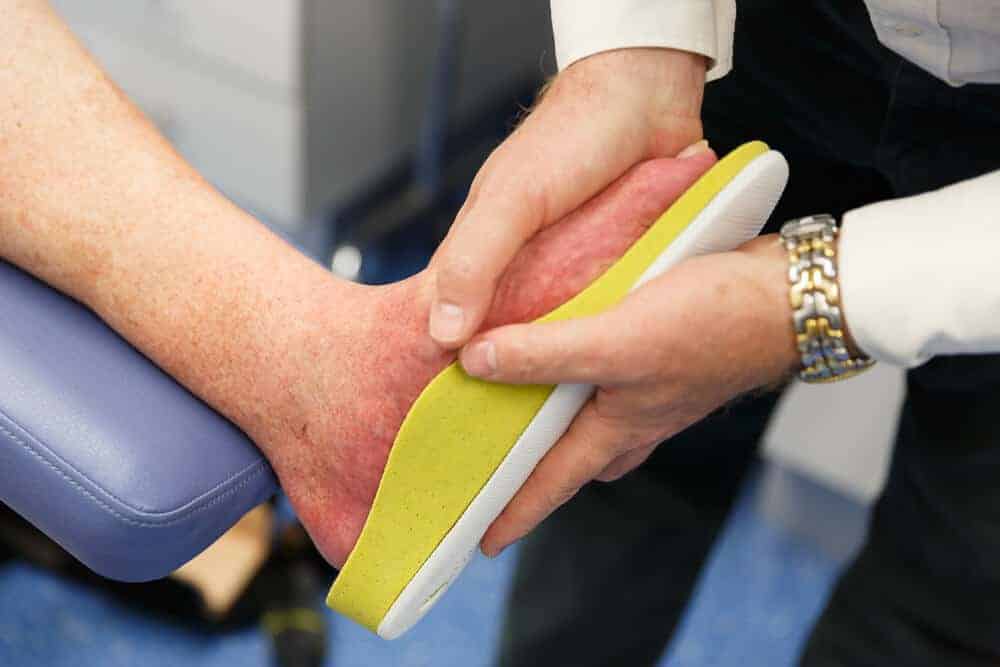
Orthotics for Plantar Fasciitis (shoes, insoles, socks)
With over 20 years of experience in managing food conditions, My Foot Doctor has discovered that soft, yet highly resilient EVA rubber foot orthotics crafted from 3D computerised scans are the choice option for alleviating plantar fasciitis.
Our custom foot orthotics are highly contoured, manufactured with precision and typically available on the same day.
Plantar Fasciitis Surgery
Most people with plantar fasciitis do not require surgery. However, if you have exhausted other less invasive care management and still experience chronic heel pain, surgery can be a viable option.
